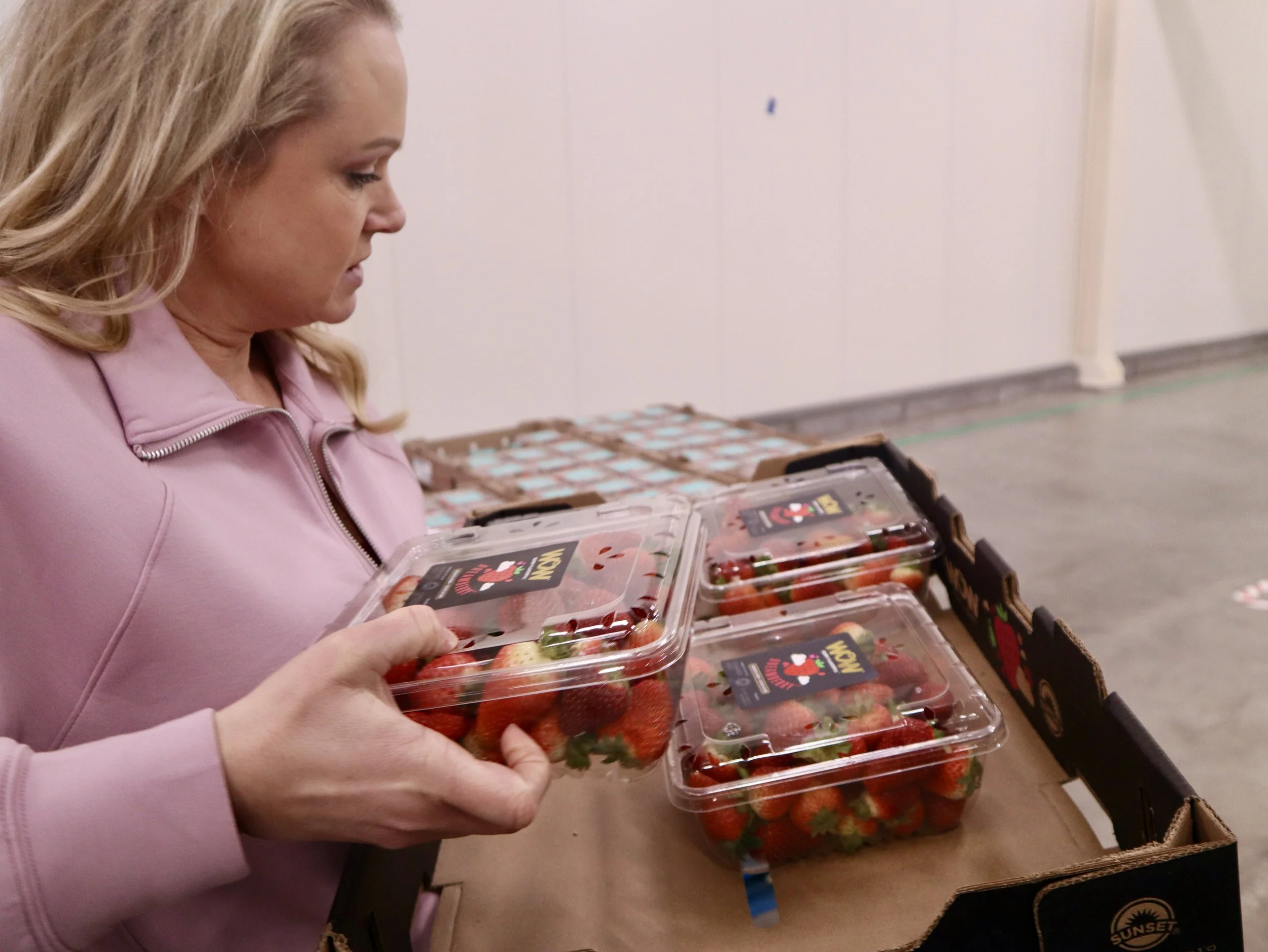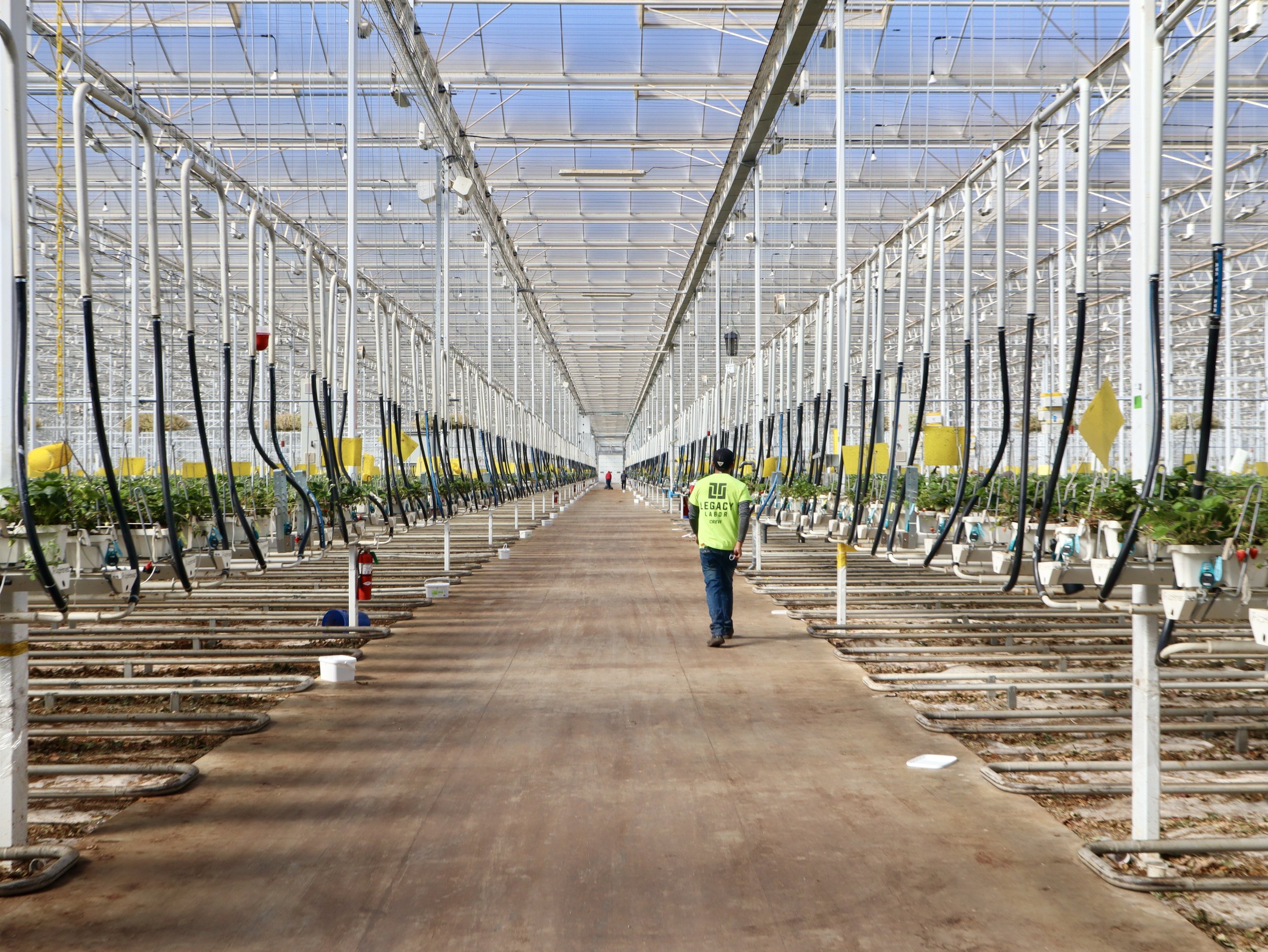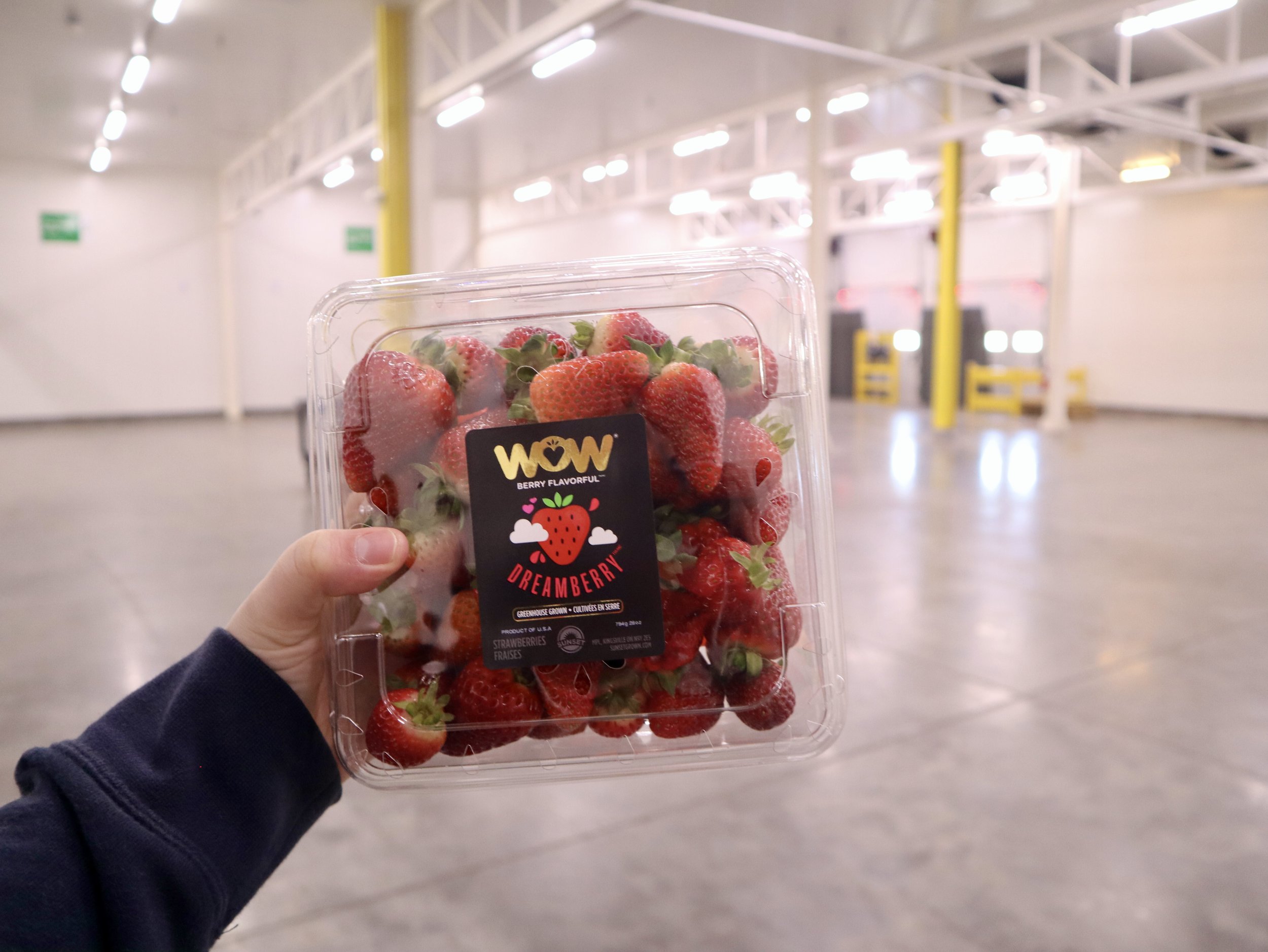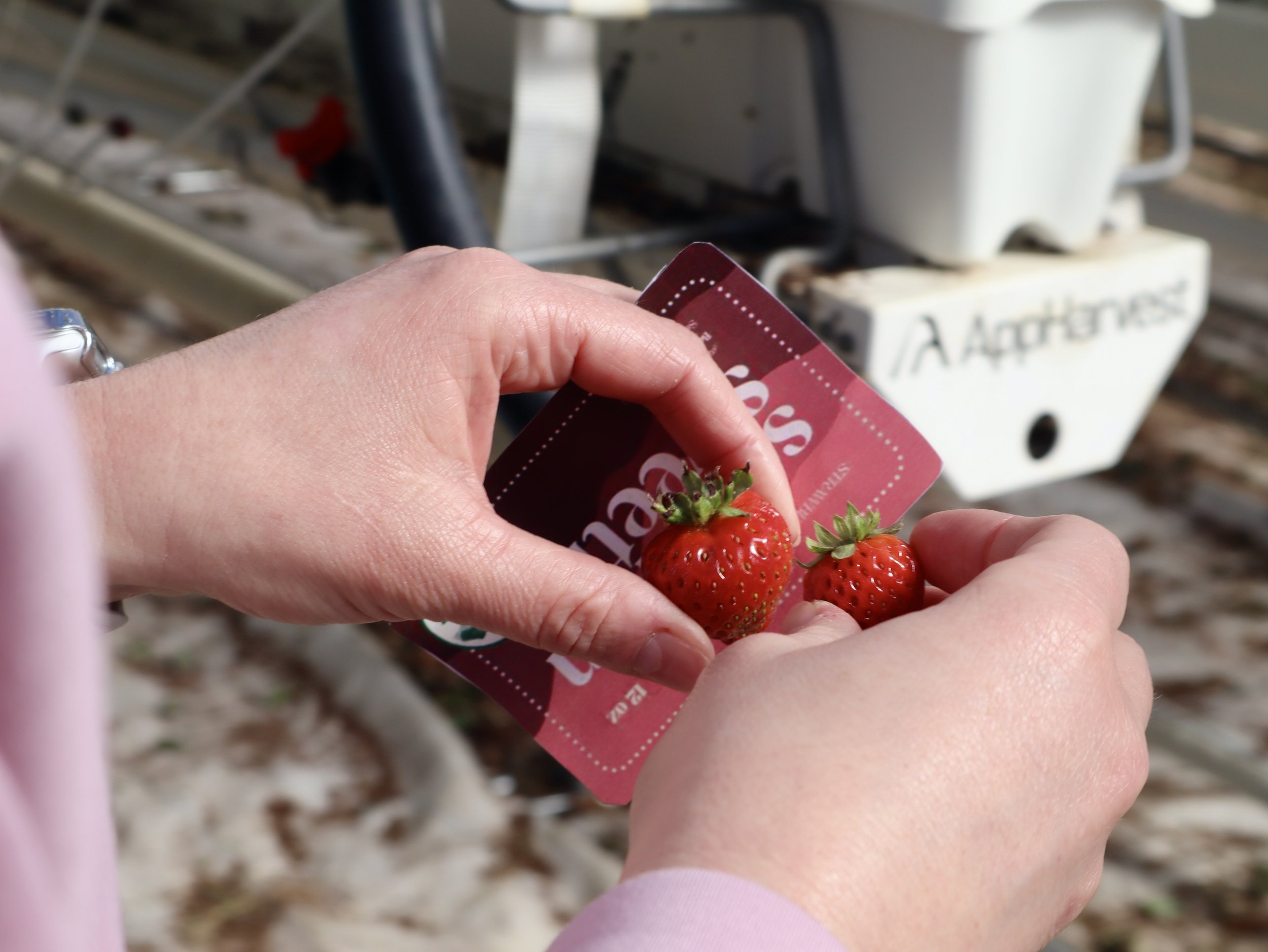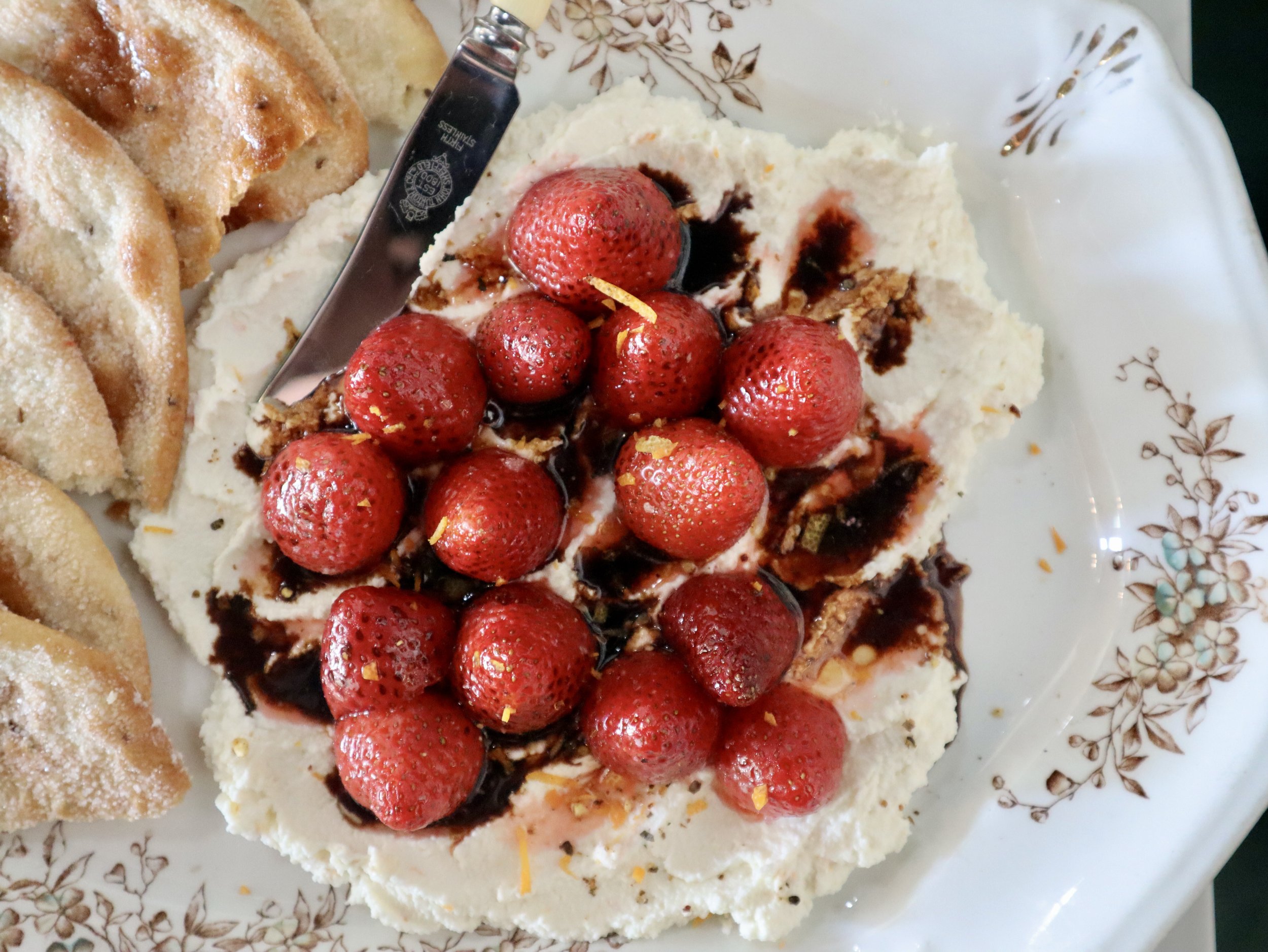Dutch Lessons
story by Donna Hecker & photography by Talitha Schroeder
A bicycle resting in a wide corridor held a clue to the new owners of a 30-acre greenhouse on the outskirts of Somerset, Ky., better known for its proximity to Lake Cumberland and thousands of recreational boaters than for fruit production.
As Amanda Gumm – company human resources director and our tour guide for the day – explained, bikes and scooters provide workers with fast zero-emissions transport around the huge site. They’re two admittedly low-tech additions to the very high-tech innovations that the Bosch family has brought to this former AppHarvest facility.
Bosch Berries is part of a sixth-generation family-owned agricultural enterprise based in the Netherlands, a country famous for bicycle friendliness, but also for being second only to the United States in the value of its agricultural exports. And it’s a global leader in exporting agricultural and food technology as well.
The Somerset facility is the Boschs’ first greenhouse in the United States; back home they raise blackberries year round and green bell peppers. While the peppers are primarily shipped to other European countries and the United Kingdom, Bosch’s blackberries are mostly reserved for the domestic market.
The current Bosch generation consists of Tijmen and his brother Wouter, and their father Jaco. Tijmen has relocated to the Somerset community to focus full-time on Bosch Berries. He told us they chose to grow strawberries because they’re the second most popular fruit in America, and because the Bosch family can provide the expertise and technology needed for successful greenhouse cultivation.
Family patriarch Leonardus van den Bosch established the roots of Bosch Growers in 1854. His son expanded the operation to include greenhouses during the trying times of the 1930s and in the 1960s, Leonardus’s great-grandson Wim erected the family’s first Venlo greenhouse.
A design developed in the Netherlands, Venlo greenhouses are capped with multitudes of small triangular roofs and gutters. The Bosch Berries greenhouse in Somerset was constructed based on the Venlo model; its gutters collect rainwater, which is channeled into a retention pond, before being piped back into the greenhouse for misting and irrigation.
On the day we visited, there was no picking taking place but a shipment of bios had just arrived. Having no idea what “bios” referred to, we soon learned that the greenhouse uses bees and beneficial insects for pollination and pest control. Indeed, hives and hanging flower baskets were stationed throughout the greenhouse and the bees buzzing around were in high clover, metaphorically speaking.
Those bees lent a pastoral touch to an otherwise highly monitored, tightly controlled environment designed for maximum efficiency and output. Harvesters check in with electronic badges at the start of each row; there’s a precise technique to picking every berry; the berries are dropped into carts that move along a track formed by the water lines beneath the rows. Computerized sensors continuously measure light, temperature, and humidity, and adjust the levels of any as needed.
The strawberry variety grown here is named Albion, described by the Burpee catalog as “an everbearing type that has firm fruit bursting with sweetness, and resistant to Verticillium wilt, Phytophthora crown rot and anthracnose crown rot.” Tijmen told us that Bosch analyzes over 100 variables, including the brix value and acidity level, before any berries are harvested.
Once picked, the berries are taken to a blast chiller for rapid cooling, then re-weighed, packed, labeled, and stacked 20 boxes high before being moved to cold storage where they await shipping. Amanda said that the trip from harvest to cold storage takes about four hours total.
Bosch Berries operates on a ten month planting, growing and harvesting cycle. Over 1 million plants were planted last July; by the time harvesting stops, the plants will have yielded around 2 million pounds of berries. Midsummer brings a two-month break for cleaning, maintenance, upgrades and replanting.
The company has partnered with Canada-based SUNSET® for labeling and marketing support. SUNSET-affiliated brands include WOW Dreamberry strawberries, Campari and Kumato tomatoes, and Shazam shishitos. Bosch hopes to add an Appalachia Proud strawberry label to the lineup soon and the Somerset crew has already picked out a design for it.
Our hosts spoke of many challenges – building a team, expanding the market, improving quality – and were honest about the energy needed to fuel such an intensive operation and their quest to conserve it. But there was no mistaking their pride and optimism, or their commitment to their new Kentucky home.
We’re told that when conditions are just right, when the clouds are low in the night sky and the humidity is high enough; a rosy glow from the greenhouse’s LED lighting rises above its glass arches and can be seen all around. We hope that rosy glow is a promising sign of good things to come for our new Kentucky neighbors.
You can find strawberries grown by Bosch Berries packed under the “Southern Sweeties” label at Lexington’s Good Foods Co-op and from What Chefs Want; the “Private Selection” label at Kroger stores; and the WOW label at Sam’s, Meijiers and Costco.
Related Content
Berries & Cheese
It's a little early yet for garden-grown strawberries but here's a sweet little recipe that works especially well with greenhouse berries like the ones that Bosch Berries grows down the road in Somerset.
© 2025, Holly Hill Inn/Ilex Summit, LLC and its affiliates, All Rights Reserved



